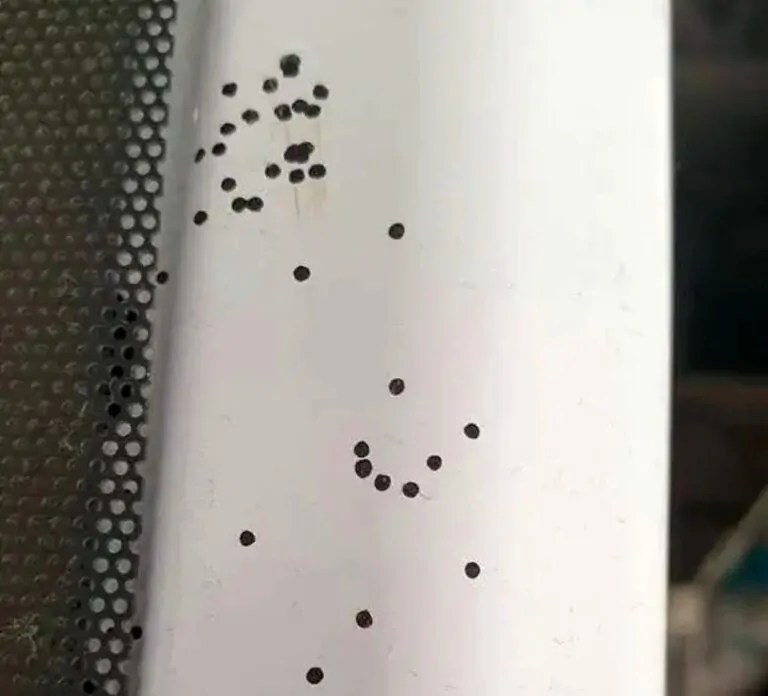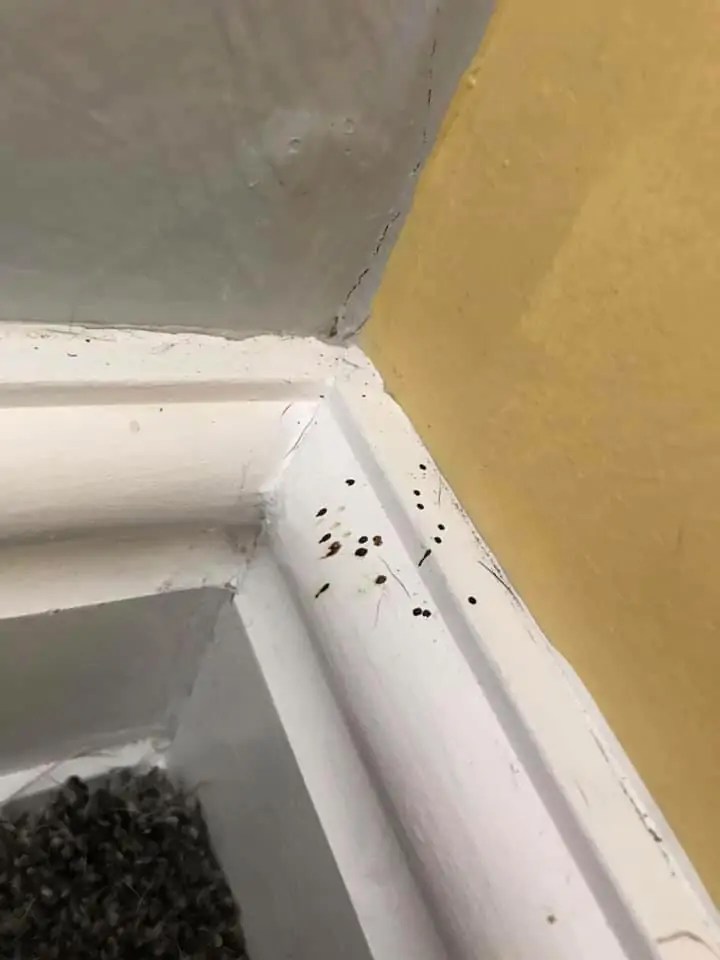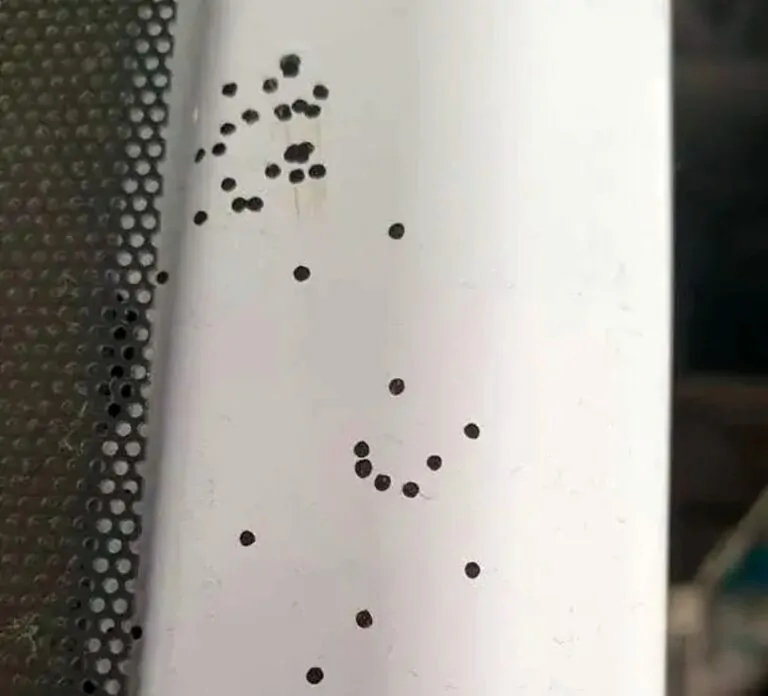The woman was taken aback when she noticed weird black specks on her kitchen tiles and the top of her PC.
She asked the internet community if anyone had any thoughts about what it could be. She couldn’t think it could be spider droppings, but she wanted to be sure she had all the facts before drawing any conclusions.
She noted that these inexplicable particles had not been there before and had only arrived after she woke up this morning.

Many individuals are terrified of spiders, which continue to be a public health concern. Rather than leaving solid feces, spiders eject a liquid fluid resembling the ink stains commonly spotted on walls and other surfaces.
There are undigested food pieces and other substances in this fluid that the spider’s body has produced. While these droplets may appear dangerous at first glance, they pose no danger to humans or animals.
Spiders are also crucial to the environment because they keep insect populations down and help keep things in balance.
While inspecting a container with a potentially dangerous spider, like a black widow, skilled pest management professionals (PMPs) may have an unreasonable fear that the arachnid will attack any adult or child nearby without warning.
This idea is exacerbated by the belief that the next bite will be excruciatingly painful and lethal.
Despite these misunderstandings, PMPs recognize that the health concerns posed by insects such as mice and flies, which can contaminate the food supply, significantly outweigh those posed by spiders.
Nevertheless, some entomologists are skeptical that spider droppings provide any health benefits.
Spider droppings can be hazardous to one’s health. Filth flies can transmit infections such as Staphylococcus spp., Streptococcus spp., Enterococcus spp., Salmonella spp., and E. coli through their feces, all of which can cause various illnesses in people.
When determining whether spider droppings are safe, it is critical to consider whether they may include diseases and physical things.
Spiders indoors are also cause for concern since they may deposit their excrement on several surfaces, including furniture, toys, pillows, and towels.

If food preparation tables are not adequately disinfected after usage, they might get contaminated with spider excrement. If any of these items come into contact with a person’s mouth or skin, they may expose them to harmful germs or other microbes.
As a result, all spaces where spiders live must be cleaned regularly to prevent contamination and limit the danger of exposure to deadly microorganisms.
Melissa Gaver-Wainwright, a Ph.D. student in entomology at Washington State University, wanted to investigate the undiscovered consequences of spiders eating dirt flies.
She was particularly interested in determining whether the spider and land may transport pathogenic bacteria on surfaces beneath it.
Is it possible that having spiders indoors poses a public health risk? She conducted her research on this topic to answer these queries.
Her studies have shown that spider droppings may not be as harmless as many belief.
After tapping a fecal sample from a sterile container, and cultivating it in a growth medium to boost the bacterial count, a complete analysis of black widow spider (Latrodectus Hesperus) waste material was done.
They use universal bacterial primers that amplify conserved regions of the 16S rRNA gene to identify microorganisms associated with feces. Amazingly, no pathogens were found.
This finding could be explained by research indicating that some spider venom and blood contain antimicrobial properties capable of destroying many bacteria, including E. coli, Staphylococcus spp., Enterococcus spp., Pseudomonas spp., and others.
These broad-spectrum antibacterial peptides make these species vulnerable to venom or blood from spiders.
When protecting one’s health, removing dirt flies may be more important than eliminating spiders. Spider droppings are regarded as undesirable when living indoors.
Yet, many open concerns remain about web-building spiders, such as if other species have bacteria-free feces or if different molecular approaches produce different results.
More research on this subject is required to learn it thoroughly.








